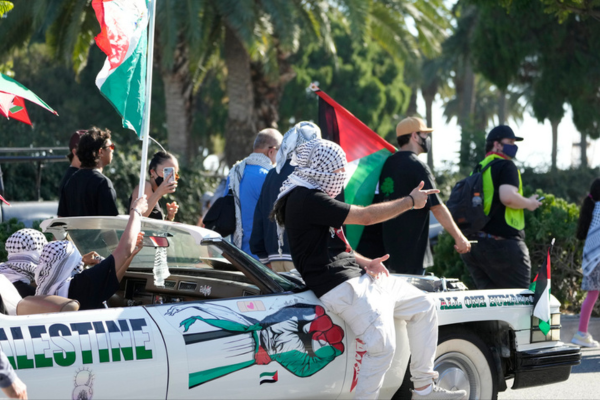Concerns rise as the Bulgarian Socialist Party (BSP) and Varazhdane Party boycott a pro-Israel vote. Urgent calls to address legislative gaps on hate speech.
By Ben Cohen, Algemeiner
The tiny Jewish community in Bulgaria is facing a wave of antisemitism stoked by pro-Russian parties, two of its leaders have said.
In the wake of the Hamas pogrom in southern Israel on Oct. 7, there had been “an explosion of left-wing antisemitism, in which anti-Zionism and anti-imperialism are layered, mixed with hatred for western Europe,” Solomon Bali, a vice-president of the B’nai B’rith organization, told the Euractiv news outlet.
Bali identified Russia as the key source of the hostile propaganda targeting Jews in the formerly communist Balkan state. “Memes, videos, and propaganda flood social media, and much of it comes from pro-Russian sources,” he noted.
Maxim Delchev — executive director of the Bulgarian Jewish organization Shalom — echoed Bali’s analysis, adding that Bulgarian far right parties, which have posed a threat to the country’s Jews in the recent past, were less visible in the current antisemitic campaign.
“They express support for Hamas and Palestine, which goes beyond what is permissible,” Delchev remarked, observing that the antisemitic propaganda “comes from left and far left groups and related social media profiles, who fiercely support Russia in the war in Ukraine.”
Bali separately commented that the left-wing parties had shown a disturbing lack of sympathy for the Israeli victims of the Hamas onslaught.
Both Bali and Delchev pointed out that the two pro-Russian parties in the Bulgarian parliament — the Bulgarian Socialist Party (BSP), a successor to the Communist Party, and the hardline nationalist Varazhdane (“Revival”) Party — had boycotted a vote last month that resulted in the passage of a statement of support for Israel.
The statement asserted that Israel’s military response to the Oct. 7 atrocities “is an inevitable and necessary reciprocal response — an act to protect the life and dignity of the Israelis and the right of existence of the State of Israel itself.” It was passed by 124 votes with no opposition.
Delchev characterized Bulgarian laws on hate speech as weak, arguing that the “legislative gap” needed to be closed.
The Jewish community of approximately 1,100 is currently awaiting the outcome of a legal complaint filed with the public prosecutor by Shalom concerning an antisemitic image that went viral on Bulgarian internet channels over the summer.
The image showed Bulgaria’s Jewish former foreign minister, Solomon Passy, wearing a striped concentration camp uniform while being manhandled by four Nazi German soldiers.
The accompanying text quipped, “If you don’t want Russian gas, let us supply you with ours.”
Concern among Bulgarian Jews over growing antisemitism predates the Hamas pogrom.
Throughout the year, Jewish leaders have protested the inflammatory statements of supporters of Varazhdane — which emerged as the third largest party in parliament following April’s general election — including placards on display at a demonstration backing Russia’s aggression against Ukraine that equated Zionism with Nazism.
